Living under an oppressive regime is hard to imagine. Well, it is for me. Other than a brief period of government overreach in the early 2020s,1 I've had it pretty easy. But if you're my age and brought up in Albania, that is not the case. Your school years would have been an education in servility to a dictator and his party. And your family would have protected you from the truth of what was really going on.2
From 1945 until 1991, Enver Hoxha and his communist regime ruled with an iron fist. Taking tips from the North Koreans, the secret police and their web of civilian informants created a state of fear and distrust. Those attempting to leave the country were shot at the border. While critical thinkers, or those hesitant in their support, were punished with torture, imprisonment or execution. The disdain for Western influence was so great that letting your sideburns grow too long or simply wearing jeans could land you with a stretch in the big house. Your only relief came in the shape of comedian Norman Wisdom. For whatever reason, his films were permitted by the supreme leader. Some say Hoxha drew a parallel between Wisdom’s underdog character, Mr Pitkin, and Albania's struggle.3
Wandering the streets of Tirana with these backstories in my brain, I speculate. Passersby who look older than me and a little worse for wear become torture victims from a bygone era. Those looking otherwise ok are potential informants or agents of the secret police. They say the culprits from the old regime were not held to account, and the appetite for justice waned over the years. So, logic suggests that unless they escaped to Italy in the early 90s, these people walk among us - their tales kept on the down-low to avoid opening old wounds.
The shift to a free society in the 90s was not plane sailing. A financially naive population were fleeced by pyramid schemers touting unrealistic returns. Many lost homes and their life savings.4 Some politicians were in on the scam, and it brought the country to the brink of civil war. Today, most transactions in Albania are done in cash. Is it a sign the public lacks trust in their institutions and the establishment? Or an astute understanding that a truly free society only exists when its people have the right to transact with anonymity.
Despite this scandal, Albanians have found enough spare cash to swap the five-pointed star for a three-pointed version. There are more Mercedes per capita on the roads of Albania than anywhere else in the world.5 Every third car is a Merc. And we’re not just talking clapped-out bangers. A decent percentage are brand-spanking new. It's a confusing cultural obsession, given the tenement blocks in which many owners live. But as a local told me, "We had almost 50 years of communism, we're not gonna drive Fiats." Is this an over-correction for the luxury deficit of communist times when private car ownership was banned?
The shadows of yesterday are still visible. Hoxha was more Stalinist than Stalin, and when other communist countries curtailed their commitment, he burnt his bridges and took Albania further into isolation. It was siege mentality on steroids. Paranoid about nuclear attack, he built 175,000 bunkers across the country to protect himself and his people. These concrete domes still litter the landscape and have become a curiosity for visitors. Now, as the Albanian tourist board plays catch up with its Adriatic-adjacent neighbours, a similar-shaped but more practical item dominates the horizon, the parasol.
It's a sign of the times. Limited job prospects and a low-wage economy combine with mountain vistas and the Mediterranean climate to fuel an unofficial exchange programme. The influx of tourists and ex-pats looking for a cheap getaway is offset by young Albanians fleeing abroad in search of a better life. Merry old England is their destination of choice, according to a 2024 Libertines song.6 And an invasion of the UK, according to a Tory politician. But with earning prospects at home a fraction of what they could get elsewhere, can you blame them for trying?
Most ethnic Albanians don't live in Albania, and economic opportunity is the latest reason driving the diaspora. The abandoned factories are a signpost to the industrial decline. For the most part, migration is a young man's game. Those lucky enough to build a life and earn overseas can support the people they leave behind. But there's a flip side. Evacuating the young and ambitious is antithetical to the community and entrepreneurial spirit Albania needs to rebuild itself. This brain drain ages the demographic at home and increases the reliance on foreign investment and tourism.
And that leads me to the elephant in the room. Or should I say, the gangster? Since opening up after the communist era, Albanians have acquired an undesirable reputation overseas. Years of poverty, oppression and civil unrest bred a strong survival instinct and an impatience for prosperity. Capitalism brought hope. But when that crashed and burned too, despair and disaffection followed. With legit opportunities thin on the ground, some took the less scrupulous route. Now, Albanians are a dominant player in transnational organised crime7 circles and specialise in human trafficking, gun running and narcotics. In British prisons, they’re the most represented foreign group, and it's a similar story in other parts of Europe.8
Those thriving in the diaspora through honest means help shift international perception back into the positive. Pop stars, Glastonbury headliners, OBE recipients, Hollywood actors and Premier League footballers fly the flag in the UK, Europe and the US. In generations past, a mother of dubious saintliness9 made an impact big enough for the airport in Tirana to bear her name. Meanwhile, photographer Gjon Mili pushed the boundaries with stroboscopic (or multi-flash) techniques. His life's work is now permanently on display at a museum in Korcë. But can people excel on the international stage from within modern Albania? If not, emigrant success stories might be a double-edged sword and inadvertently endorse the exodus.
My opinion of Albania is now shaped by those who remain. These are people who want to go but can't, people who left but came back and people who are genuinely happy to stay. A family man selling veggies in Shkodër. An artist-photographer working in Tirana. A gallerist from Korcë. An Aussie couple who made a home in Sarandë. A businessman in Vlorë. And the many members of that old boys' network who meet in the mornings for a glass of rakia with their coffee. They're a friendly bunch once you get to know them. They drew me into their booze-before-breakfast tradition a few times and wouldn't let me pay for my drinks. Their tales served to direct my camera, furnish this essay and dispel some media myths.
Albania is better than it was but worse than it could be. My new acquaintances cite political corruption as the reason. When those in power buy elections and trouser taxpayer cash, people vote with their feet. Sticking around to rebuild a country that has let you down requires a jingoistic and sacrificial mindset reminiscent of an era they are trying to forget. In their absence, the steady flow of foreigners and their money helps to plug the economic gap. So, for now, it seems the getaway culture, in both directions, is here to stay.
My essay: Never Mind The Jollop (2021)
Audiobook: Free: Coming of Age at the End of History by Lea Ypi (2021)
The Telegraph: Albania pays tribute to Sir Norman Wisdom (2010)
BBC Sounds: The Great Pyramids of Albania (2021)
DW (video): Why Albanians love Mercedes-Benz (2022)
The Libertines (music video): Merry Old England (2024)
Intelligence Fusion (video): The Rise of the Albanian Mafia (2023)
Inside Albania (podcast): John Alite: Why young Albanians look to crime and why life in the wrong lane never pays (2023)
Book: The Missionary Position by Christopher Hitchens (1995)




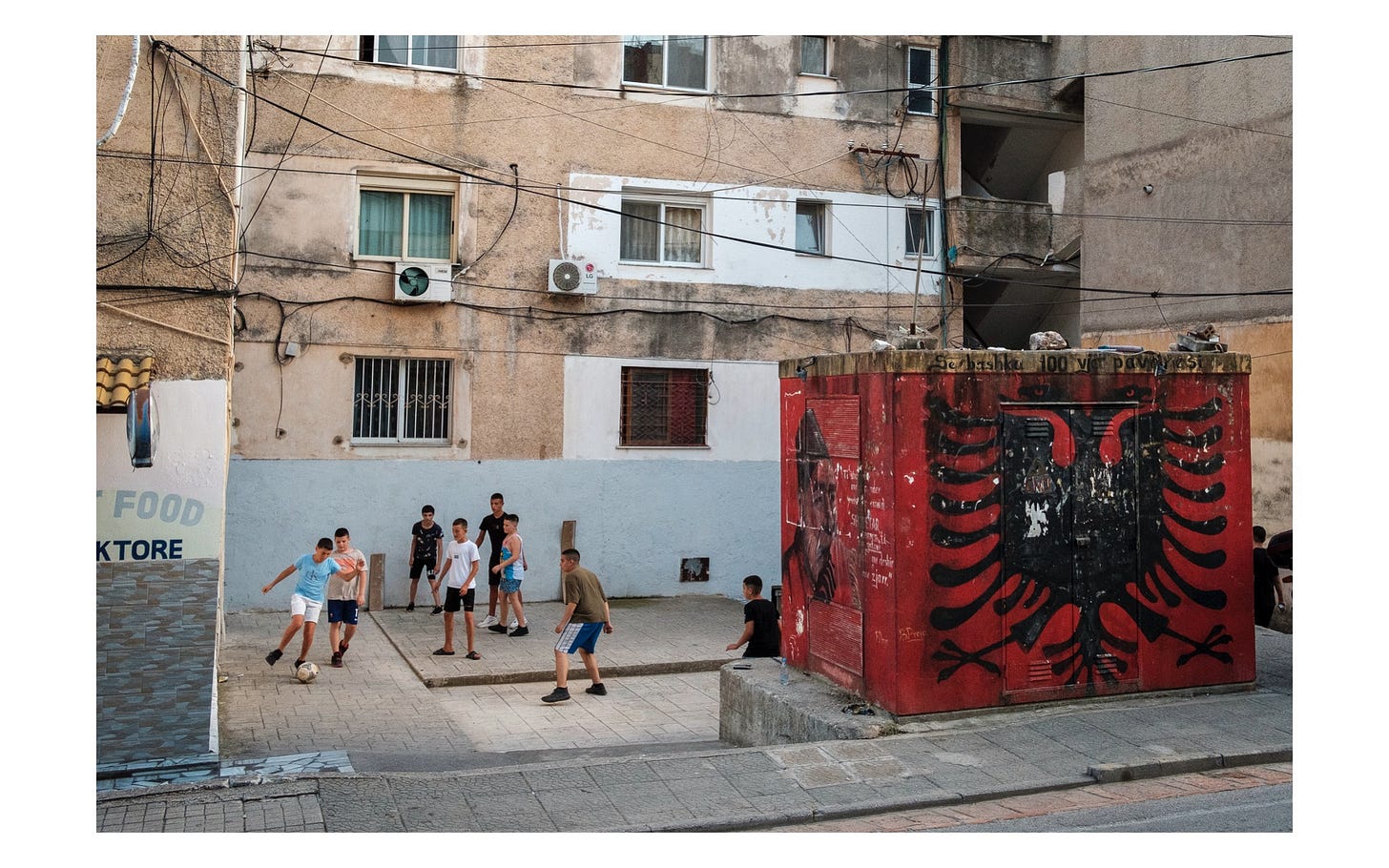
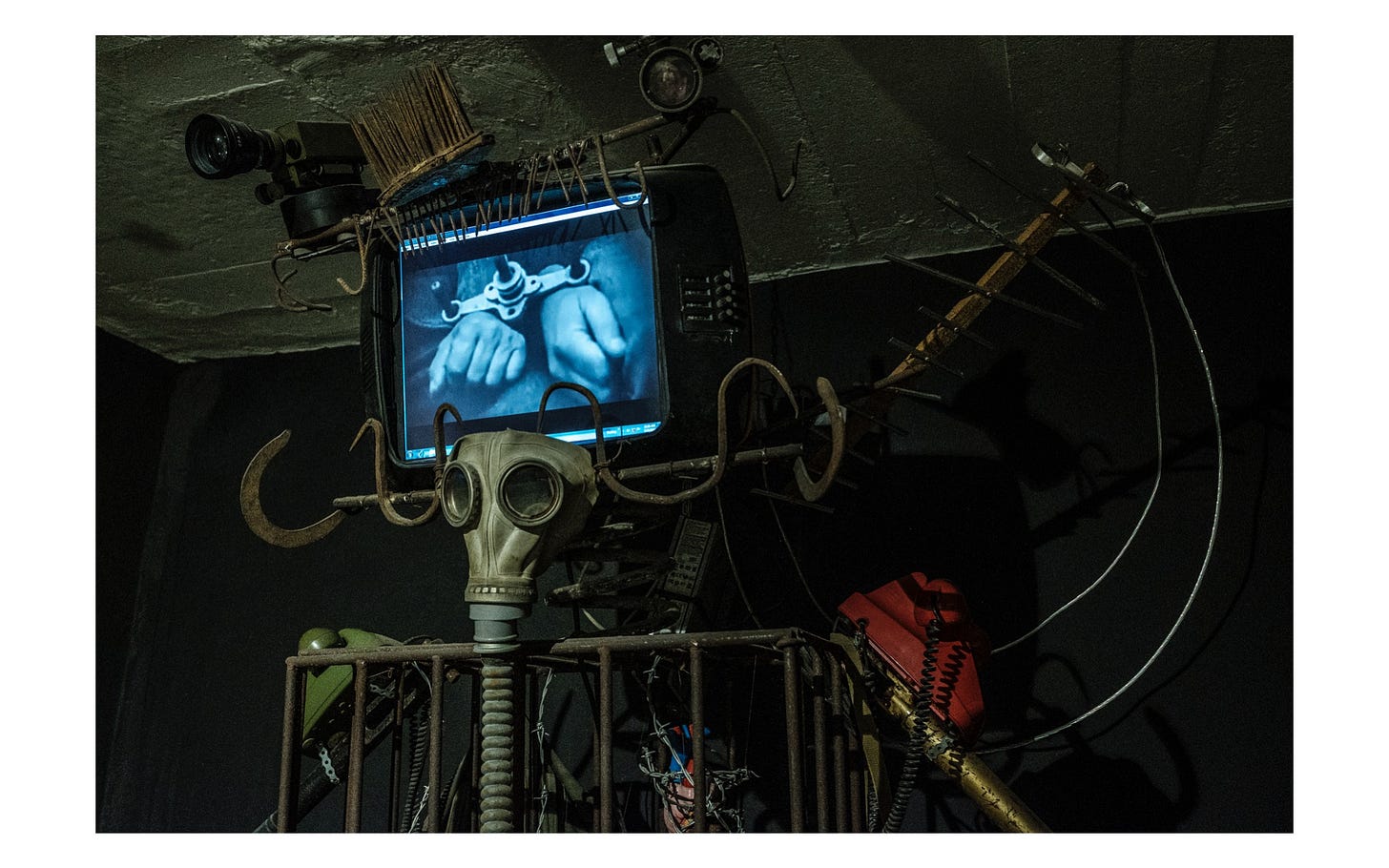
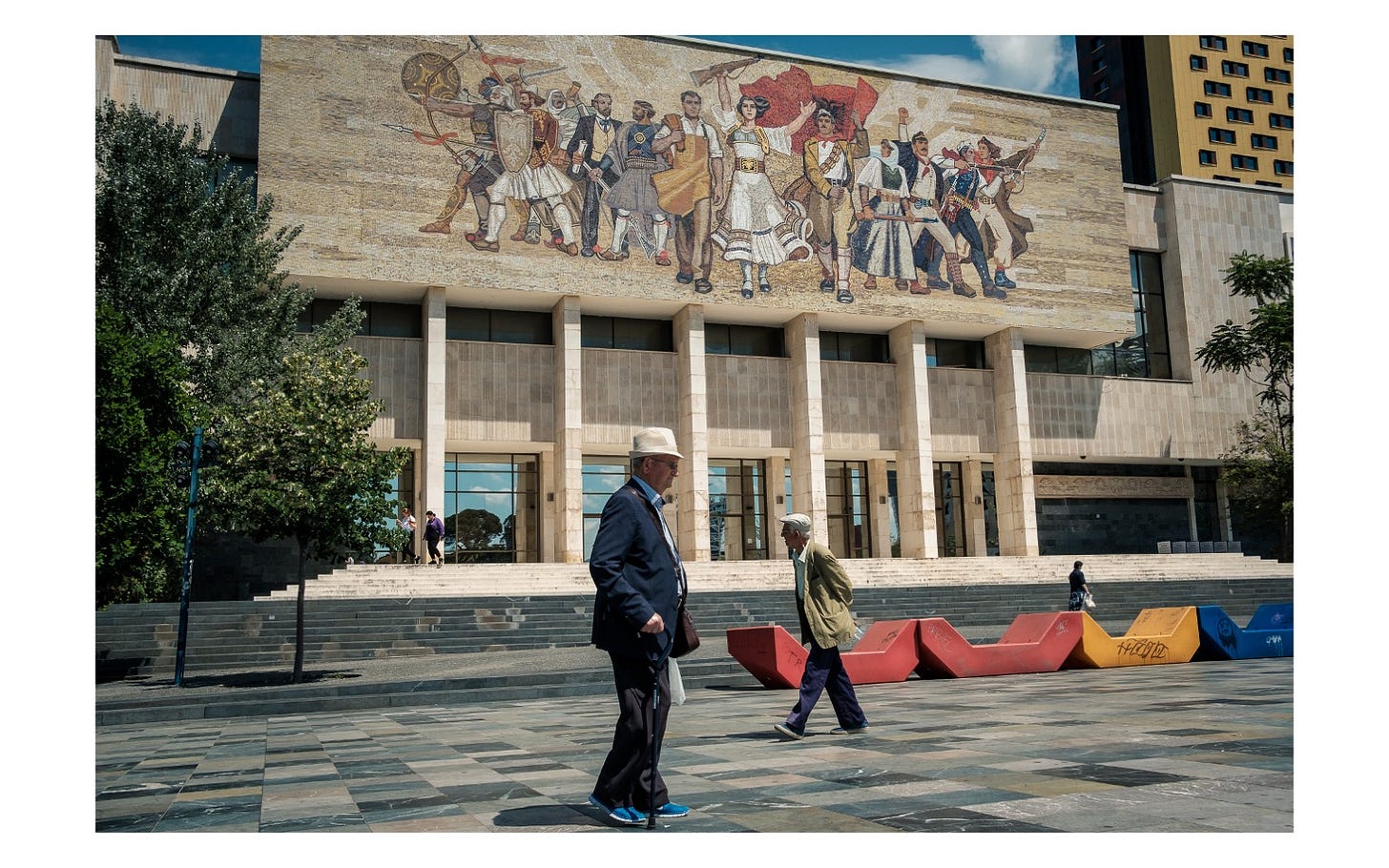
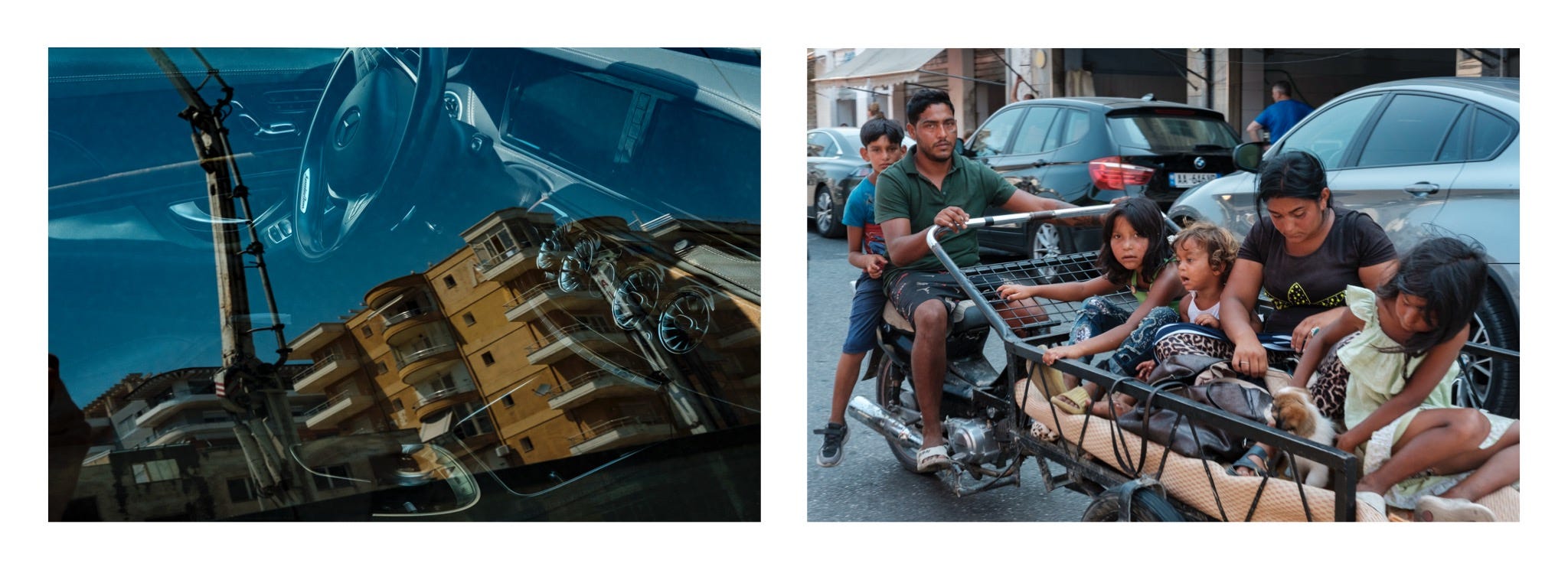
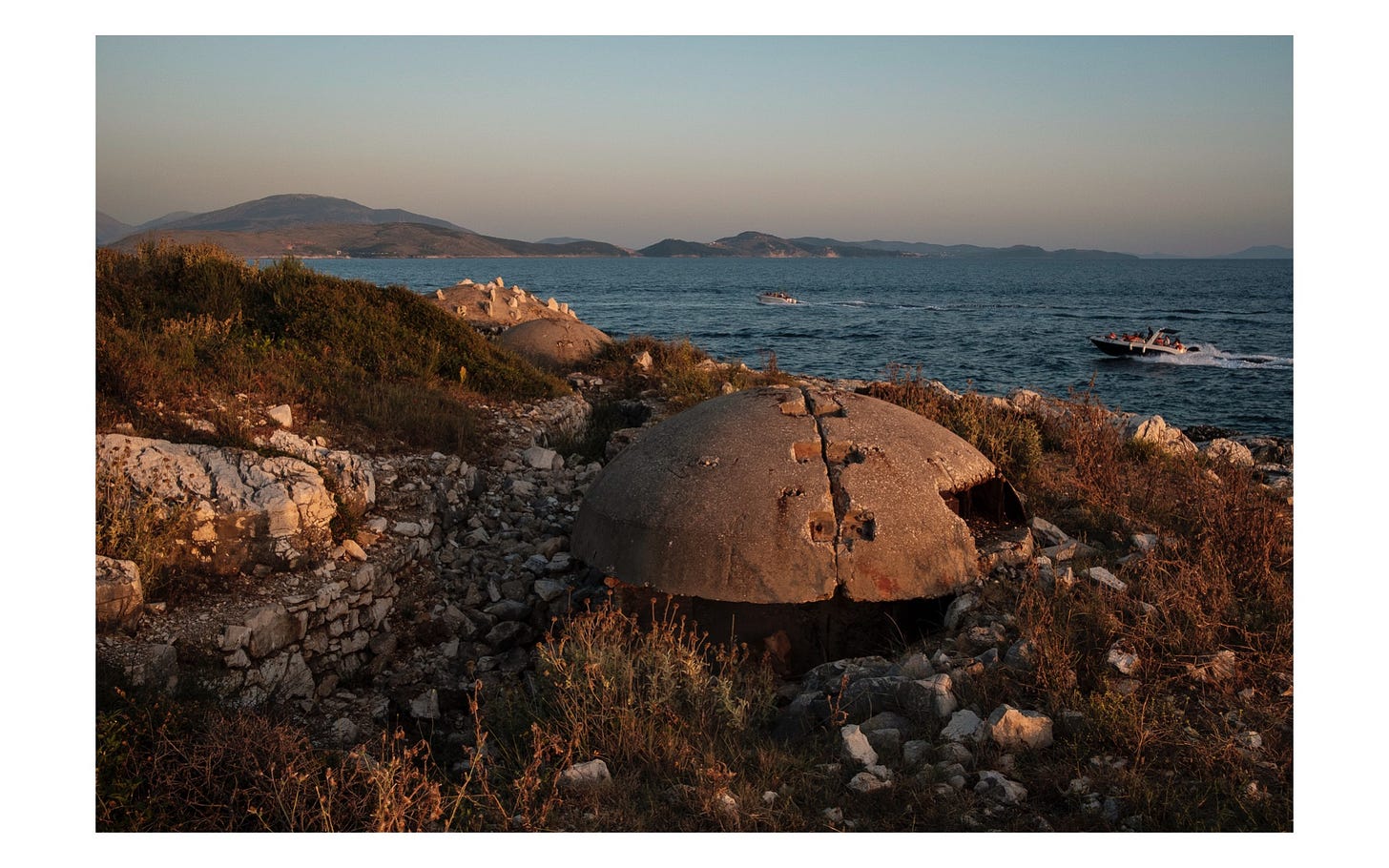



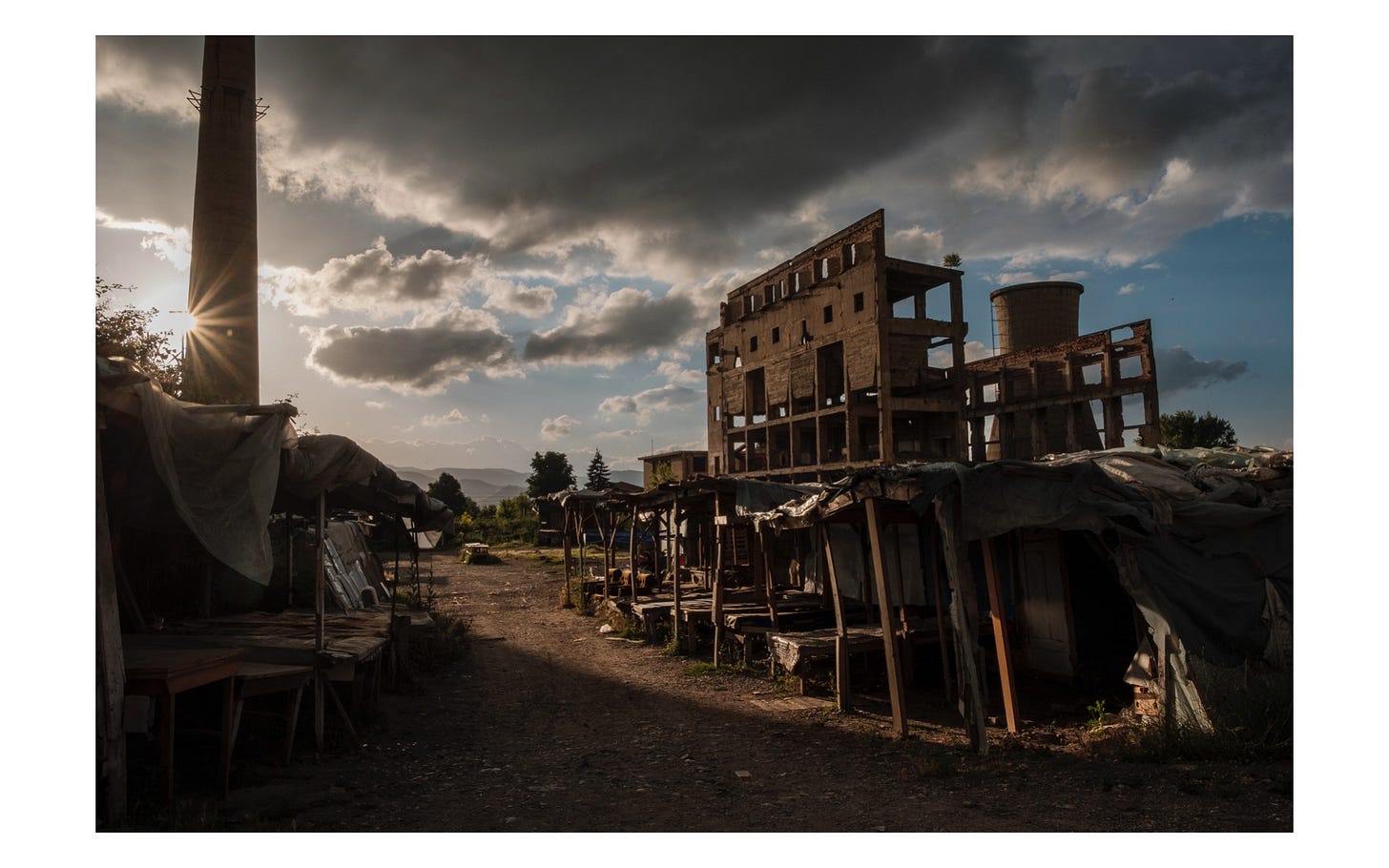
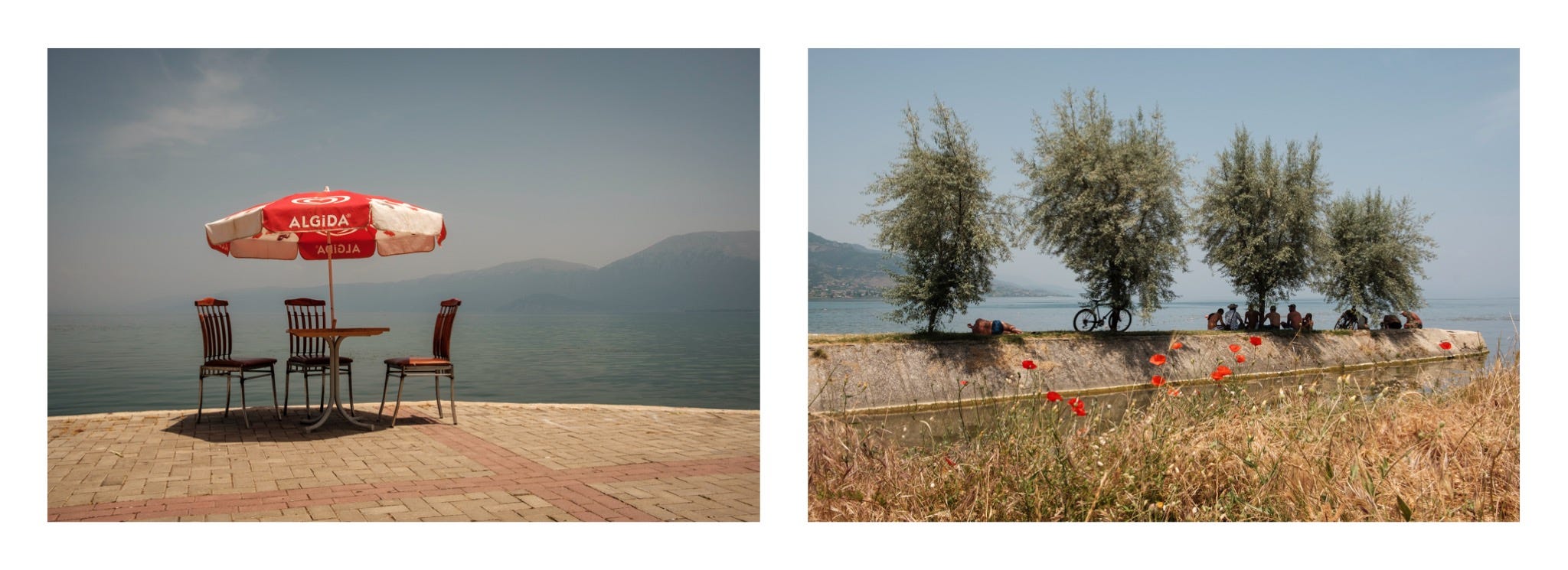

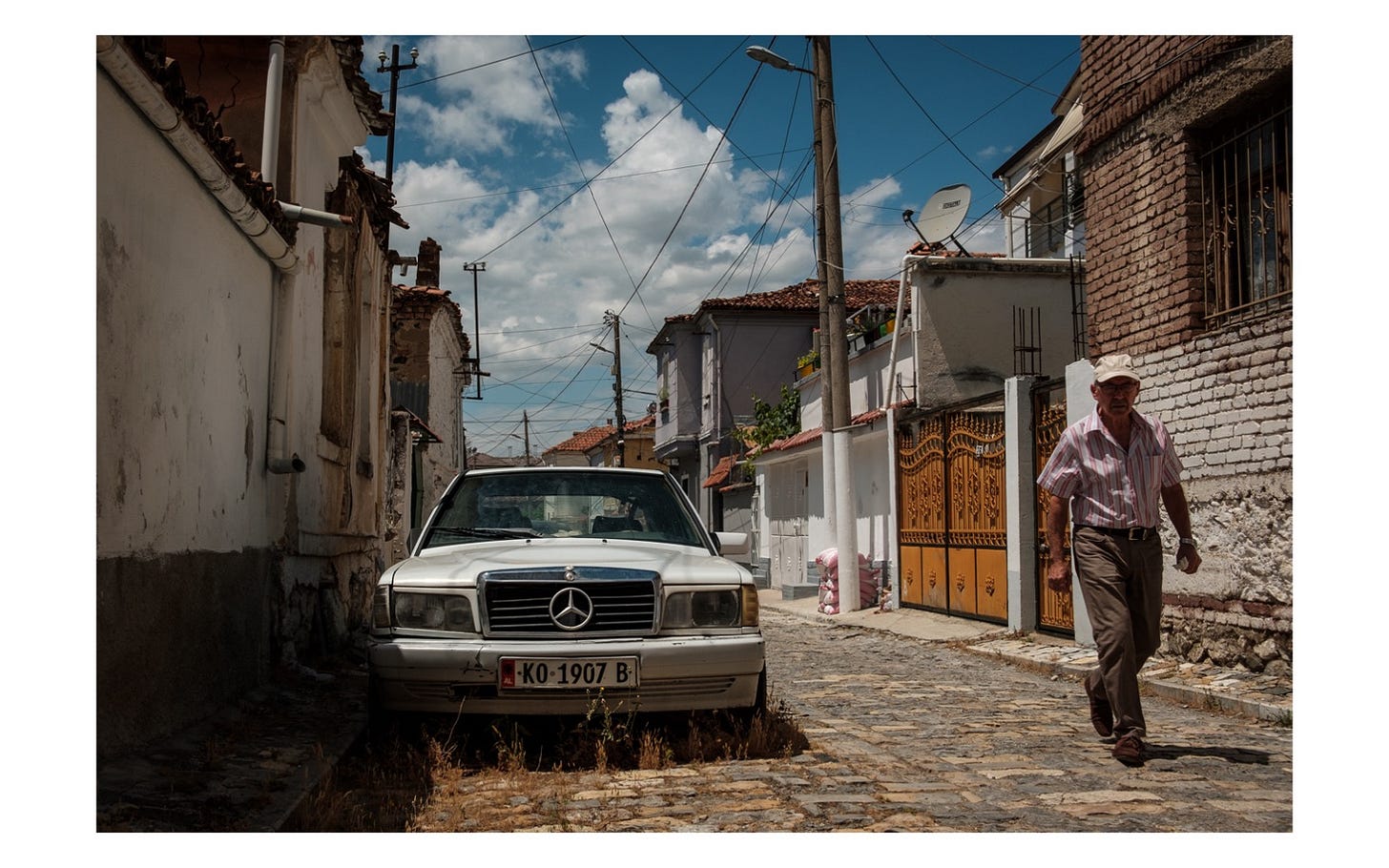
When I lived in Albania the preponderance of M-Bs was put down to vehicle trafficking. Higher end models were the result of insurance fraud with the connivance of German owners. The standing joke was that the Albanian tourist board's advertising slogan for Germany was 'Come to Albania. Your car's already here. '
Loved reading the piece Ben and the photographs are amazing. specially like the reflections on the merc window! Congrats!